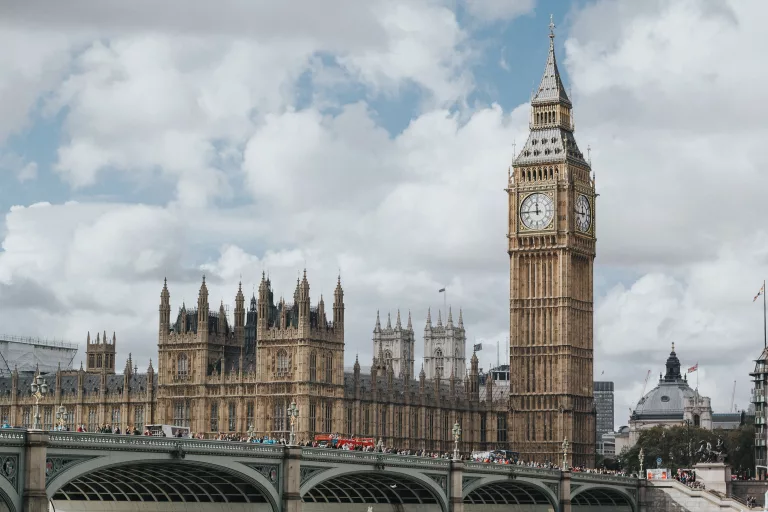If you could hear my bursts of laughter through the hallways of the Glink in the summer of ‘23, I apologise. But all credits go to The Elements of Eloquence (2013), a book about the role of classical rhetoric in language and literature. Mark Forsyth’s comedic approach to educating his readership on rhetoric and etymology of the English language makes it unexpectedly one of the funniest books I’ve ever read.
As so many great stories have begun, Mark’s did at Oxford:
“It all started with a blog actually. Which was the idea of a friend of mine from New College, not me, my best friend from Oxford. She had the idea of starting a blog together called ‘The Inky Fool’, which was my nickname for her, on interesting facts about the English language and etymology, and funny stories and stuff like that. I continued writing and it got very popular; its popularity brought me a book deal.”
“That’s how I got my thing; I just love amusing stories. I’ve always had a brain like a rubbish tip which remembers stories, jokes – ones like, a priest, a rabbi and a flamingo walk into a bar. I have a weirdly retentive memory for funny stories.” As for transferring this into the world of words: “when I find out a story about the etymology of a word or something, if it’s vaguely amusing, I will remember it.”
Being dazzled by the effortlessness of celebrities or even your peers who score a first with apparently no studying (completely untargeted), Mark reveals the honest work that goes behind portraying that: “Dolly Parton said “It takes an awful lot of money to look this cheap.” It actually takes quite a lot of work to write books as though I know it all already and it’s utterly effortless. I do have a pile of reference works open on the desk in front of me, and then I write it up as though I just knew all this stuff off hand, which isn’t always true…”
Out of the world of academia, tasked with crafting The Elements of Eloquence “was a nightmare. I wrote it in the British Library, but I wasn’t actually reading books. I spent the entire time finding a figure of rhetoric and then I just stared at the ceiling, going through every single poem I know and I’ve memorised an awful lot of poetry. But also every song lyric I knew, and every famous quote and every film line, trying to just pull them out of my head. And every time I finished a chapter, I sorted them all out so they nicely flowed, one into the other. Then a day later, I remembered another example which I should have put in. So that drove me completely mad.”
I couldn’t imagine myself picking up a book on alliteration and thinking that that should be a fun read, but the unimaginable happened when I read Mark’s novel. Humour. Some people have it, some people don’t.
Mark definitely does, but you take his erudition seriously. “There’s an obvious way of thinking about things as jokes versus serious stuff. And if it’s important, you shouldn’t joke about it. But I joke about the important stuff because when I’m joking it does not mean that I don’t take this seriously. The interesting thing about comedy is that it’s about creating a world which operates on the hedonic principle in which only what is agreeable matters and what is disagreeable is bad.
“I’m interested in the idea that you create a world which is kind of cut off from life in which everyone is viewed merely as agreeable, disagreeable, fun or not fun. So in this world, Adolf Hitler’s is a bit of a bore and that’s the main problem with him if you see what I mean. Somebody who believes they are very moral and earnest is always just boring.”
So to create comedy, go to the masters. “Blackadder is a terrible coward and a bully and everything about him is morally bad. But once you make it just about who you’d rather have a pint with, as it were, then you create a comic world, which is very important. You can have a joke within a tragedy, but it’s still a tragedy. Whereas to create proper comedy means creating a world which is separate from the normal way we look at reality.”
If you’ve ever had the existential question pop up, “What am I gonna do with my degree? What’s the use?” Mark put it to use in the most you-do-you, unique and beautiful way there is: “Oxford has a wonderful English course that was absolutely fantastic. And I’ve been using it ever since. I’m one of the few people to make money out of an English degree, which has always made me proud.
Back in the day, there used to be a joke among us at Oxford: why don’t English students draw their curtains in the morning? And the answer was, it gives them something to do in the afternoon.”
In the hedonism of post-graduation, Mark spent his time “trying to get books published and not getting them published.” But The Elements of Eloquence brought purpose: “I wrote it for a couple of reasons. Firstly, because it was the book I wanted to read when I was 16. I wanted to understand what the figures of classical rhetoric were and nobody had written anything or even tried to quote anything good since the 1580s. And the other reason was that the reason you’re reading a poem is that it’s beautiful. It’s like if you say “Full fathom five your father lies”, you are the greatest poet who ever lived. Whereas if you say “your father’s body is 9.144 metres underwater”, you’re just a Coast Guard with some bad news.” And The Elements delves into exactly why.
Inspiration to follow your dreams can strike from anywhere. It can be – reportedly – divine in nature. Mark pulls the curtain on the true journey to success:
“There’s a thing which you get in interviews, which is always a lie. The interviewer says to somebody, “when did you first want to be a professional tennis player?”. The reason you became a professional tennis player is you started playing tennis when you were young, and then it turned out you were the best tennis player in class, best tennis player year group, best tennis player in school, best tennis player in the county, and then you ended up in the Wimbledon finals. That’s how it actually happens. In almost anybody’s life there isn’t a moment. But oddly enough, history is going to be really wrong on this because everyone who gets interviewed a lot prepares an answer for exactly that question. Which is a complete lie.”
Oxford can be a bubble, some experiences are rarely possible elsewhere (or at least without getting arrested). One of Mark’s favourite experiences is somewhat of a bucket list one: “I was in a punt getting drunk with some friends. Two of us stood up and the punt became unstable, my friend tried to lean on me and that didn’t work and I fell into the river. It was shallow, but I was soaked up to my waist. I took off my trousers, didn’t take off my underpants, and we all rang them out. And then we all walked back through Oxford to Lincoln College to get some dry clothes. And it’s a bunch of us, including me and I think I was wearing a tweed jacket and a shirt and stuff and just no trousers and no one gave us a second glance. Nobody. My friend said, “Oxford, I love you.” There’s no other city in which you can do this and just nobody will look. There’s just a guy, no trousers.”
Mark’s honest anecdotes brought us to discussion of the snollygoster. This is a word for a dishonest person, specifically a politician. Mark shares his opinion on whether he’d met a snollygoster at Oxford: “No. I was at Lincoln College with Rishi. I was two years above him and I still see him occasionally.” But Forsyth is of the opinion that Sunak does not fit the ‘snollygoster’ bill: “he’s a lovely chap.”
Here is what he is working on next: “A children’s novel coming out this year which is called A Riddle for a King about logical paradoxes. Now, I’m working on the history of English poetry. I got in touch with my old tutors at Oxford who are still around and retired now. I’ve been going up to visit them, buy them lunch and pick their brains, but it’s like going to a tutorial. I found myself desperately revising Wordsworth before going to see my old Wordsworth tutor. Being back in Oxford and essentially having tutorials again is rather wonderful.”
With thanks to Mark Forsyth for this interview.
A Riddle for a King, his new children’s book will be released this year.











